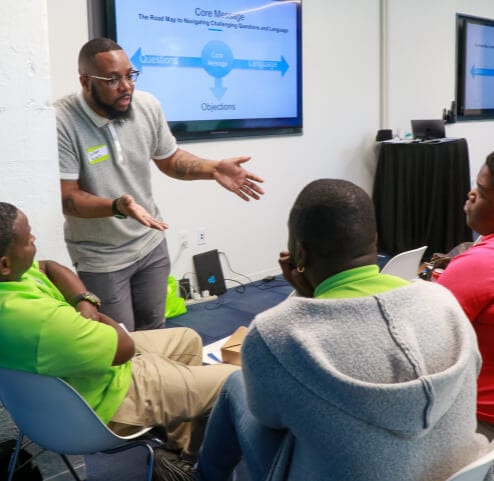TGP Applications Open Now – April 11, 2024
Transformative Grants are focused on supporting the development and implementation of programs and activities that address the four programmatic focuses of the Gilead COMPASS Initiative® Coordinating Centers, including organizational capacity building; wellbeing, mental health, trauma-informed care, substance use, and telehealth; faith based advocacy; and HIV-related stigma reduction. The maximum amount an applicant can request is $100,000 (including overhead).
Through COMPASS-funded programs and initiatives, we’ve been able to train over 47,000 individuals in leadership development, serve over 400,000 through implementing partner programming. With COMPASS support, grantees have expanded programs improving access to needed care and treatment, increasing local leadership and advocacy and tackling stigma across the Southern United States.
A brief description of the four Transformative Grant funding areas is listed below. For more details about the funding areas and award, please review the Request for Proposals (RFP) application.
Funding Area: Building Organizational Capacity
Lead Coordinating Center: Emory University Rollins School of Public Health
This initiative will allow applicants to seek funding to support organizational capacity building activities in at least one of three focus areas: 1) Sustaining and Advancing Initiatives, 2) Organizational Mentoring and Twining and/or 3) Community/System Level Interventions.
Funding Area: Wellbeing, Mental Health, Trauma-Informed Care, Substance Use and Telehealth
Lead Coordinating Center: University of Houston Graduate College of Social Work
This initiative will focus on organizational change in trauma informed care, to include but not limited to, wellness, mental health, substance use (especially opioid use), and telehealth and its intersection with HIV in the Southern United States.
Funding Area:Reducing HIV-Related Stigma Reduction
Lead Coordinating Center: Southern AIDS Coalition
This initiative will focus on supporting the design, implementation, and evaluation of interventions to reduce HIV-related stigma.
Funding Area: Faith-Based Advocacy & Spiritually Integrated Capacity Building
Lead Coordinating Center: Wake Forest University School of Divinity
This initiative will focus on building the capacity of faith leaders’ understanding of and engagement with their communities’ health challenges and opportunities, and equipping them to co-create with key community partners new holistic strategies for addressing HIV/AIDS and related health concerns.
Learn More Before You Apply
It is highly recommended for those interested in applying to watch the recording of the Transformative Grant webinar to gain valuable insights and guidance on the application process.
Click Here to Access the Recording of the TGP Webinar
2024 TGP Webinar PowerPoint Slides PDF
TGP Frequently Asked Questions
Interested In Applying?
Click here to learn more about application requirements and eligibility.
The final round of COMPASS Transformative grants will be awarded in June and will run for 15 months through September 2025. Other funding opportunities have been released and will continue to be released throughout the first half of this year. The final years of the program’s ten-year period will allow the coordinating centers to focus on sustainability – implementing the programming, collecting the data and recording success.
For questions related the to the Transformative Grant email info@gileadcompass.com

